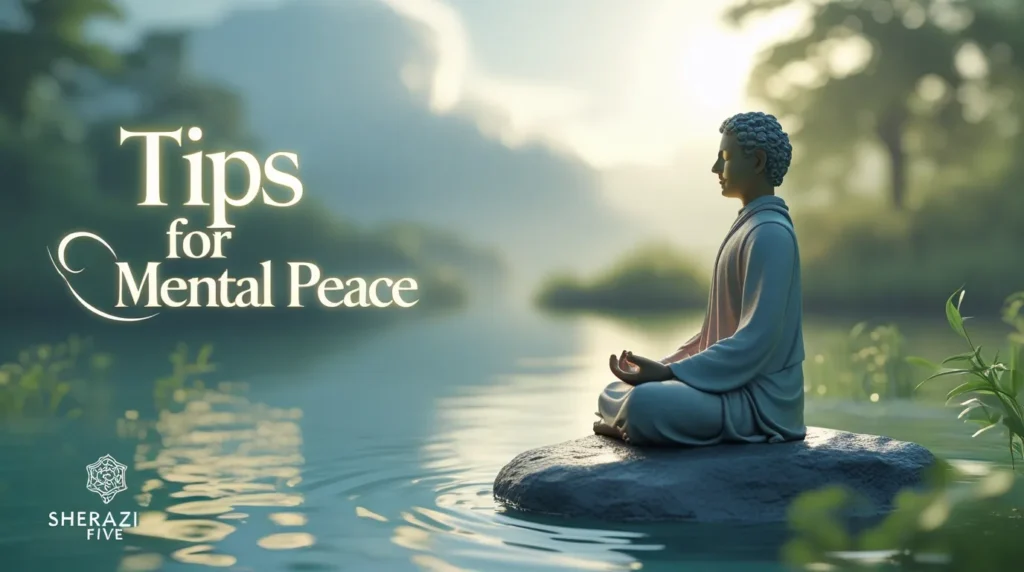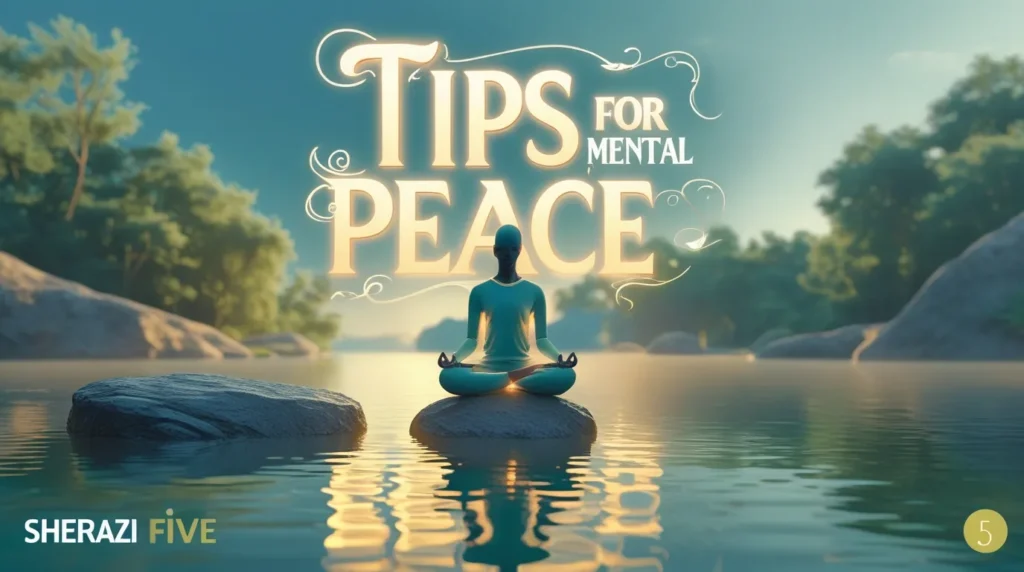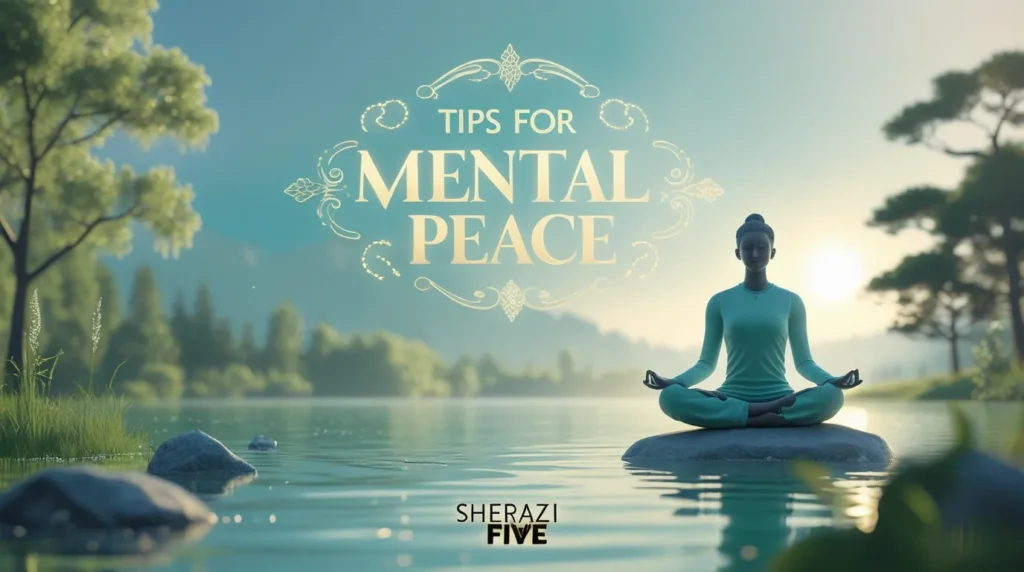Finding peace in today’s busy world can feel like a challenge. Yet, following the right tips for mental peace can help you stay calm even in stressful situations. A peaceful mind means better focus, improved health, and a happier life.
This article explores simple habits and practical steps to help you achieve lasting mental well-being. Whether you’re dealing with stress at work or personal challenges, you’ll find valuable insights here.
Understanding Mental Peace
Mental peace is the state of having an inner calm that’s not easily shaken by external problems. It doesn’t mean you’ll never face challenges. Instead, it helps you respond to them with balance and clarity.
A peaceful mind improves decision-making, boosts energy, and builds a more positive mindset. Understanding this concept is the first step toward creating a calmer and more focused life.
Common Causes of Mental Restlessness

Stress often builds up because of work-life imbalance, constant use of social media, and financial or health concerns. These pressures can create feelings of anxiety and burnout.
Recognizing these triggers allows you to make changes before they take control. When you know the source of stress, you can apply the right stress management techniques to regain balance.
Daily Habits to Achieve Mental Peace
Building daily routines is key. Start with simple steps like practicing gratitude journaling, doing gentle morning stretches, or spending five minutes in silence before starting your day.
Small, consistent actions lead to big results. Over time, these habits promote emotional balance and make it easier to stay calm even in tough moments.
Power of Mindfulness and Meditation
Mindfulness techniques such as focusing on your breath or observing your thoughts help you stay present. Meditation provides long-term benefits by calming a restless mind.
Many people use guided meditation apps or listen to soft music during meditation sessions. Just 10 minutes a day can reduce stress and bring lasting mental clarity.
Role of Physical Health in Mental Peace

Your body and mind work together. Regular exercise, a balanced diet, and proper sleep improve your mood and energy levels. When your body feels healthy, your mind is naturally more peaceful.
Physical activities like walking in nature or light yoga are simple ways to connect movement with inner peace. These activities also enhance self-care practices.
Managing Stress and Anxiety
You can lower stress by keeping a structured daily plan and avoiding unnecessary commitments. Setting realistic goals is a proven stress management strategy.
Here’s a quick comparison of stress-reducing activities:
| Activity | Benefit for Mental Peace |
|---|---|
| Deep breathing | Calms nervous system |
| Journaling | Releases stored emotions |
| Nature walks | Improves mood and focus |
| Limiting screen time | Reduces mental overload |
Avoid comparing yourself to others on social media. Instead, focus on personal growth and maintaining your emotional balance.
Building Positive Relationships
Strong relationships create emotional security. Surround yourself with people who inspire and support you. Spend more time with loved ones and less with those who drain your energy.
Practicing forgiveness and setting healthy boundaries reduces unnecessary conflicts. These steps lead to stronger bonds and a calmer mind.
Digital Detox and Nature Connection

Constant notifications can harm focus and increase stress. A short digital detox every day helps reduce mental noise. Turn off screens an hour before bedtime to rest your brain.
Spending time outdoors is equally important. Fresh air, sunlight, and the beauty of nature offer a natural boost to your mental well-being.
Professional Help and Therapy
Sometimes you need expert guidance. Speaking to a licensed therapist or counselor provides effective therapy for peace of mind. Professionals can help you discover deeper causes of restlessness.
Online therapy platforms and mental health apps are now widely available in the USA. They provide convenient ways to seek help whenever you need it.
Sustaining Mental Peace Long-Term
Maintaining mental peace is an ongoing journey. Keep reflecting on your progress and adjust your routines as your life changes. This ensures your inner calm stays strong over time.
Remember, consistency matters more than perfection. By applying these tips for mental peace daily, you’ll experience a lasting sense of clarity and balance.
Final Thoughts
Achieving mental peace is not about removing all challenges from life. It’s about building the skills to face them with a peaceful heart and mind. Start with one or two new habits, and keep going until they become part of your routine.
These tips for mental peace will guide you toward a healthier, happier, and calmer way of living — one step at a time.
( Persistent Discomfort Behind the Ear Causes, Symptoms, and Effective Treatments)( reed more )



